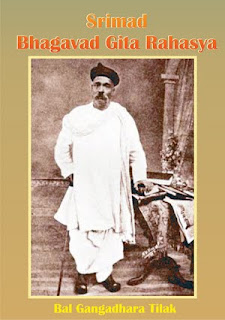Complete Works of Sri Sankaracharya (Sanskrit) - 20 Volumes
Complete Works of Sri Sankaracharya (Sanskrit) - 20 Volumes
Adi Sankaracharya (788-821 CE) was a great saint & philosopher who consolidated the doctrine of Advaita Vedanta, a sub-school of Vedanta. His teachings are based on the unity of the soul and Brahman, in which Brahman is viewed as without attributes. He hailed from Kalady of present day Kerala. Sankara travelled across India and other parts of South Asia to propagate his philosophy through discourses and debates with other thinkers. He founded four mathas (monasteries), which helped in the historical development, revival and spread of Advaita Vedanta. Adi Sankara is believed to be the organizer of the Dasanami monastic order and the founder of the Shanmata tradition of worship.
His works in Sanskrit concern themselves with establishing the doctrine
of Advaita (Non-dualism). He also established the importance of monastic
life as sanctioned in the Upanishads and Brahma Sutra, in a time when
the Mimamsa school established strict ritualism and ridiculed
monasticism. Sankara represented his works as elaborating on ideas found
in the Upanishads, and he wrote copious commentaries on the Vedic Canon
(Brahma Sutra, Principal Upanishads and Bhagavadgita) in support of his
thesis. The main opponent in his work is the Mimamsa school of thought,
though he also offers some arguments against the views of some other
schools like Samkhya and certain schools of Buddhism that he was partly
familiar with.
The Works of Sri Sankaracharya [Memorial Edition], 20 volumes published in 1910 by Sri Vani Vilas Press, Srirangam, remains to this day the standard collection of the complete works of Sri Sankaracharya. It includes Sri Sankaracharya's major commentaries as well as his other works, as given in the list below.
The Works of Sri Sankaracharya [Memorial Edition], 20 volumes published in 1910 by Sri Vani Vilas Press, Srirangam, remains to this day the standard collection of the complete works of Sri Sankaracharya. It includes Sri Sankaracharya's major commentaries as well as his other works, as given in the list below.
1. Brahmasutra-bhashya
2. Brahmasutra-bhashya
3. Brahmasutra-bhashya
4. Upanishad-bhashya, vol. 1: Isa, Kena [2], Katha, Prasna
5. Upanishad-bhashya, vol. 2: Mundaka, Mandukya, Aitareya
6. Upanishad-bhashya, vol. 3: Taittiriya, Chhandogya 1-3
7. Upanishad-bhashya, vol. 4: Chhandogya 4-8
8. Upanishad-bhashya, vol. 5: Brihadaranyaka 1-2
9. Upanishad-bhashya, vol. 6: Brihadaranyaka 3-4
10. Upanishad-bhashya, vol. 7: Brihadaranyaka 5-6, Nrisimhapurvatapani
11. Bhagavad-Gita-bhashya, vol. 1: chaps. 1-9
12. Bhagavad-Gita-bhashya, vol. 2: chaps. 10-18
13. Vishnusahasranama and Sanatsujatiya Bhashyas
14. Vivekachudamani, Upadeshasahasri
15. Miscellaneous Prakaranas vol. 1: Aparokshanubhuti, etc. [7 works]
16. Miscellaneous Prakaranas vol. 2: Prabodhasudhakara, etc. [25 works]
17. Stotras, vol. 1 [30 works]
18. Stotras, vol. 2 [35 works, plus Lalita Trisatistotra Bhashya]
19. Prapanchasara, vol. 1
20. Prapanchasara, vol. 2
There are thus a total of 118 works, counting the two Kena Upanishad
bhashyas separately, in this collection. Both Indian and Western
scholars agree that many of these works must have been written
by later Sankaracharyas rather than the original or Adi Sankaracharya. But there is no agreement on which ones are genuinely
his. Moreover, there are many other texts attributed to Sankaracharya
that are not found in this collection, some of which may have been
written by Adi Sankaracharya. So it is not a definitive collection of
his writings. Nor does it lay any claim to being a critical edition. Its
readings can often be improved by comparison with other printed
editions and manuscripts. It is simply the standard collection we have at present.
DOWNLOAD LINKS - Works of Sri Sankaracharya - 20 Volumes (1910 Edition)
Works of Sri Sankaracharya Volume 01
Works of Sri Sankaracharya Volume 02
Works of Sri Sankaracharya Volume 03
Works of Sri Sankaracharya Volume 04
Works of Sri Sankaracharya Volume 05
Works of Sri Sankaracharya Volume 06
Works of Sri Sankaracharya Volume 07
Works of Sri Sankaracharya Volume 08
Works of Sri Sankaracharya Volume 09
Works of Sri Sankaracharya Volume 10
Works of Sri Sankaracharya Volume 11
Works of Sri Sankaracharya Volume 12
Works of Sri Sankaracharya Volume 13
Works of Sri Sankaracharya Volume 14
Works of Sri Sankaracharya Volume 15
Works of Sri Sankaracharya Volume 16
Works of Sri Sankaracharya Volume 17
Works of Sri Sankaracharya Volume 18
Works of Sri Sankaracharya Volume 19
Works of Sri Sankaracharya Volume 20
Works of Sri Sankaracharya Volume 02
Works of Sri Sankaracharya Volume 03
Works of Sri Sankaracharya Volume 04
Works of Sri Sankaracharya Volume 05
Works of Sri Sankaracharya Volume 06
Works of Sri Sankaracharya Volume 07
Works of Sri Sankaracharya Volume 08
Works of Sri Sankaracharya Volume 09
Works of Sri Sankaracharya Volume 10
Works of Sri Sankaracharya Volume 11
Works of Sri Sankaracharya Volume 12
Works of Sri Sankaracharya Volume 13
Works of Sri Sankaracharya Volume 14
Works of Sri Sankaracharya Volume 15
Works of Sri Sankaracharya Volume 16
Works of Sri Sankaracharya Volume 17
Works of Sri Sankaracharya Volume 18
Works of Sri Sankaracharya Volume 19
Works of Sri Sankaracharya Volume 20
















